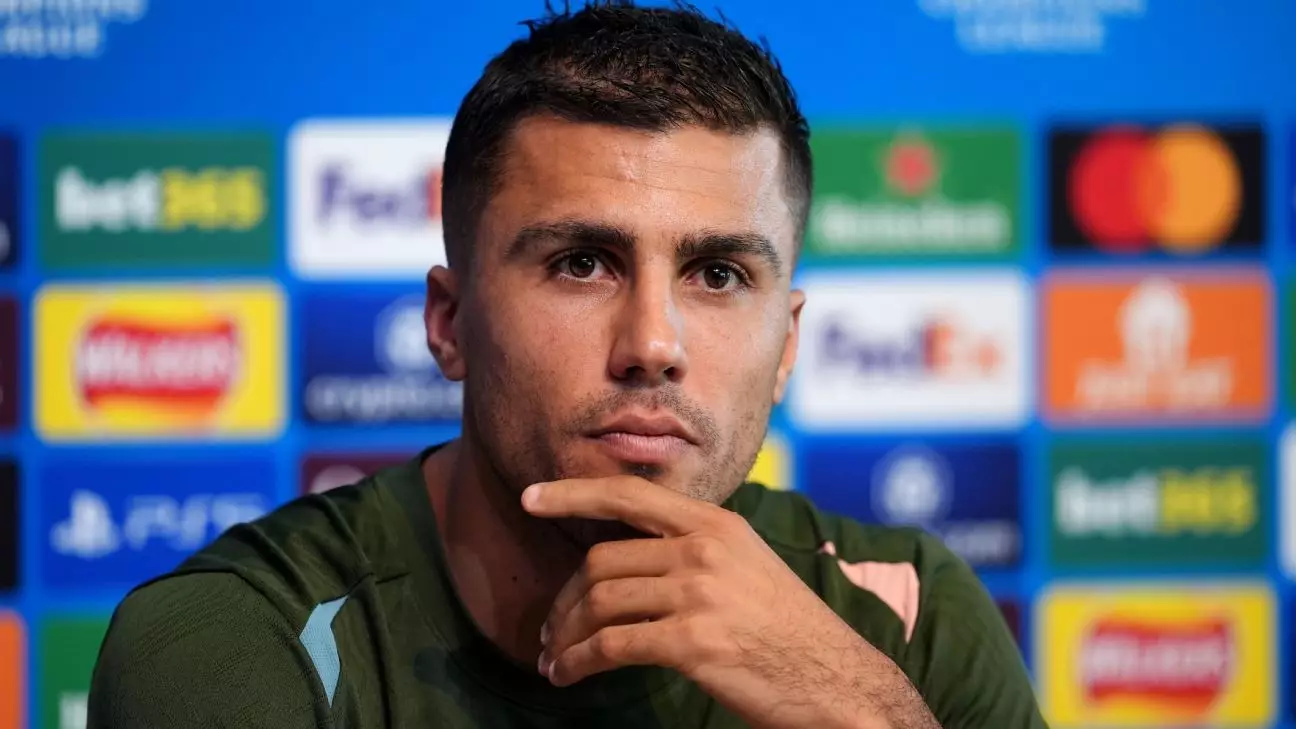The relentless schedule faced by professional footballers has become a topic of significant concern, highlighted recently by Manchester City’s midfielder Rodri. With the increasing number of matches in domestic leagues, international competitions, and newly formatted tournaments, players find themselves grappling with an unsustainable workload. Rodri’s candid remarks shed light on the pressing issue, indicating that the intensity of the game may soon push players to consider extreme measures, such as a potential strike. This situation raises critical questions about the sustainable future of football and the well-being of its key players.
Rodri’s experience, having played 63 matches last season alone—including club and international fixtures—exemplifies this arduous journey. Furthermore, with Manchester City participating in an expanded Champions League and an overhauled Club World Cup, players like Rodri could face an astonishing 80 to 85 games this season. Such a staggering number not only increases the risk of physical injuries but can also hinder a player’s performance on the field. As Rodri notes, beyond a certain threshold—between 40 to 50 matches per season—athletes struggle to maintain peak performance. This deterioration in physical condition can ultimately impact the quality of football being played, which is a concern for fans, clubs, and federations alike.
Rodri’s sentiments are not isolated; they resonate throughout the professional football community. Many players share similar apprehensions about the mounting pressure and expectations placed upon them. The athlete’s well-being is often sidelined in favor of commercial interests and viewership, leading to a significant imbalance. As Rodri aptly summarizes, the athletes are the ones “that suffer,” which serves as a stark reminder that the human element of sport should not be overlooked in light of globalization and the commercial success of football.
The mounting voices advocating for change suggest the need for a reevaluation of current schedules and formats. For the health and longevity of players and the sport itself, it is essential to reconsider how competitions are structured. Football governing bodies must take heed of these warnings to avoid a situation where player dissatisfaction could lead to drastic actions like strikes, which could tarnish the image of the sport and disrupt competitions.
Despite the challenges presented by an overcrowded calendar, Rodri remains committed to Manchester City and expresses contentment with his current situation. His position underscores an often overlooked aspect of professional sports: while players are heavily burdened by their workloads, their passion for the game and loyalty to their clubs also play a significant role in how they manage these pressures. His declaration of “three more years at City” reinforces that while concerns exist regarding workload, the emotional ties and dedication of players must not be underestimated.
As the football landscape continues to evolve, it is imperative that all stakeholders prioritize player welfare to ensure that both the athletes and the sport can thrive in the years to come.

